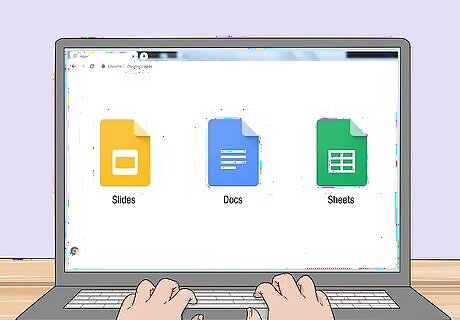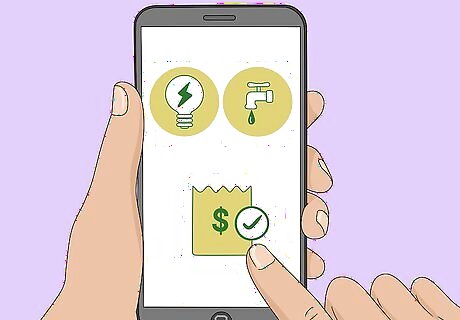
views
Here are 20 simple ways to cut costs and save money as a college student.
- Cut back on eating out and instead make your own meals and coffees. Shop smart by buying generic brands instead of name brands, too.
- Rent or buy used textbooks rather than buying them brand new. Your university bookstore might have used books, or check Amazon.
- Download and use free software in place of expensive programs, like Google Docs, Sheets, and Slides, GIMP, Prezi, and Sketchup.
Make your own meals.

Avoid eating out. Whether it's at fast food chains or upper-class restaurants, the cost of eating out is greater than that of cooking at home. Limit eating out to special occasions like birthdays and anniversaries. If you’re in a rush, fast food can be a budget-friendly option. Many fast food places offer salads, wraps, and low-calorie versions of their more popular entrees, like a little hamburger from Five Guys or a classic cheeseburger from McDonald’s.
Prepare your own coffee.

Don’t stop by your local coffee shop everyday. While it’s great to support local businesses, daily coffee runs can really take a toll on your wallet. Instead, buy a cheap coffeemaker, along with some coffee beans or ground. Then, pour your homemade coffee into a travel mug and bring it with you to school! If you spend $3 on coffee each day, you’re actually spending $600 during the school year.
Buy or rent used books for class.

Don’t buy your textbooks at full-price. Instead, check your university campus bookstore and see what the rental options are, and if you can buy any used books. Additionally, check sites like Amazon, Craigslist, and Kijiji to find potential discounts on your books. See if your school has a Facebook group dedicated to used textbooks. You might be able to take someone’s old textbook off their hands!
Download freeware.

Freeware is a free alternative to expensive software. A lot of common apps and software tend to be really expensive, and aren’t ideal for a student budget. Thankfully, freeware lets you have the best of both worlds. Download office, antivirus, image editing, and audio editing software at no cost to you! Google Docs, Sheets, and Slides is a free alternative to Microsoft Word, Excel, and PowerPoint. Avast and AVG offer free antivirus programs. GIMP and Fotor are free image editing programs, while Audacity is free audio editing software. Prezi is a great presentation tool, Evernote is great for note-taking, CCleaner is excellent for optimizing your computer, and Sketchup is a handy 3D model program.
Take advantage of student discounts.

Lots of stores and businesses offer student discounts. Show your student ID at the checkout while you’re shopping—you could get a small percentage taken off your total order. Clothing stores, electronics shops, restaurants, and media companies all offer discounts for students. Apple, Sprint, AT&T, and Lenovo all offer discounts on their electronics. General Motors, Amtrak, Eurail, and Shortline/CoachUSA provide discounts. Clothing shops like J. Crew, Banana Republic, Levi’s, and Club Monaco offer a 15% student discount.
Become a resident adviser (RA).

RAs usually get free room and board. As an RA, you’ll manage and assist students living on your hall or floor. In exchange, many schools let you live on campus for free. Stop by the housing department of your school and see what kind of options you have.
Apply for scholarships.

Scholarships can cover some of your tuition fees. Search your school’s website and see what kinds of scholarships are available. Then, apply for as many as you’d like! Some scholarships don’t get a ton of applications, so you have a better shot than you think. Any type of scholarship, award, or bursary is a great way to cut tuition costs.
Unsubscribe from unnecessary subscriptions.

Go through your monthly subscriptions. There might be a service you forgot about, or something you simply don’t use or need anymore. Cut the cord on any expensive subscriptions you don’t need, whether it’s cable, magazines, newspapers, or anything else. You could switch to a cheaper video streaming service instead of paying an expensive cable bill. Apps like TrueBill, Bobby, and Subby can provide a list of your subscriptions.
Make value purchases.

Shop for store brands instead of name brands. Generic brands tend to be cheaper than their well-known, name-brand equivalents. Look for store-brand items instead—the dollars and cents you save will add up over time! Instead of buying a famous brand of canned veggies, look for the store-brand or generic-brand option instead. Some common store brands are Great Value, Market Pantry, and Up and Up. Foreign brands tend to be cheaper, too.
Go food shopping later in the day.

Certain stores discount products later in the day. Visit your local food shop after 7:00 PM, and see if the grocery prices seem any lower. Different stores mark down their products at different times, so it might take a little trial and error before you figure out your store’s routine! In the UK, Co-op stores mark down groceries after 4 PM, while Tesco marks them down after 7 PM.
Participate in community events.

Schools and local community groups often host free events. Scroll through the websites of local schools and community organizations. Instead of seeing a movie, stop by a free concert or festival in the area. Scope out the calendar pages on different websites—these will be chock-full of upcoming events. During COVID-19, there might not be a lot of in-person events. See what kinds of online events are going on, instead!
Visit the library.

Save money on rental fees at the library. Aside from books, many libraries carry movies and video games, too! Stop by your local library before buying or renting a new movie or game. In most places, you can get a library card for free. You might be able to find some textbooks at the library, too.
Create a monthly budget.

Set aside money for groceries, utilities, and other necessities. Create a budgeting spreadsheet for yourself—the columns can represent each month, while the rows represent individual aspects of your budget. Try to develop a budget that covers your educational costs, like classes and books, as well as your living costs. This way, you won’t spend too much on specific categories! You might budget $100 a month for groceries, $40 for a cell phone plan, and $75 for clothing and toiletries. Consider making a second spreadsheet that charts how much money you’re making, whether it’s financial support from family, scholarships, or a part-time job. This way, you can compare your monthly budget to your monthly income! Make sure that you aren't living beyond on your means or relying heavily on a credit card to make ends meet.
Track how much you spend.

Download a budget app that tracks your purchases. Apps like Mint, Goodbudget, Wally, and Mvelopes keep a record of all your purchases, and let you know if you’re running over budget. Monitor your spending with these apps, and see if you notice any patterns! For instance, you might spend more money on Fridays than any other day of the week. If you notice unhealthy spending habits in the app, you can cut back and amend your budget accordingly.
Sign up for a student-friendly bank.

Join a bank with no extra fees. Some banks charge monthly fees for your account, or slap on overdraft fees. Visit different bank websites and see what perks they have to offer—some even offer rewards and benefits for student members. In the USA, Bank of America has special student accounts with no account or overdraft fees. Although more well-known for credit cards, Capital One also offers inexpensive banking, with no account or overdraft fees.
Shop with coupons.

Use coupons on items you buy a lot. While there’s nothing wrong with cutting out every coupon you find, try to focus on coupons that you’re most likely to use, like canned food, produce, paper towels, or other toiletries. Store your clipped coupons in 1 place, so you don’t lose track of them! If you shop frequently at a certain store, consider signing up for their loyalty program. You can get extra discounts and coupons this way!
Stop by discount stores.

Thrift and dollar stores can save you lots of money. Visit stores like Goodwill or Salvation Army, or any local thrift store in your area. Additionally, look for a dollar store near you—this is a great way to stock up on all kinds of food, toiletries, and other supplies for cheap.
Pay your bills on time.

Paying your bills late can lead to late fees. Additionally, late credit card payments can rack up your interest rates and take a toll on your credit score. Write down when your bills are due, and sign up for automatic payments, if you can. If you think you’ll need a bill extension, call your creditor before the due date to see if you can work something out.
Live with friends.

Split rent to lower your monthly bills. Look for a place that’s close to your school, or see if there’s any communal, on-campus housing you can try. Both you and your friends can save a lot of money this way! When you live with friends, you can also save money on groceries.
Quit smoking.

Regular smoking can really add up. Try quitting with nicotine patches, sprays, and gum. As you wean off of cigarettes, consider switching to e-cigarettes, which aren’t quite as hard on your lungs. If you smoke regularly, quitting could save you at least $2,000 each year.




















Comments
0 comment